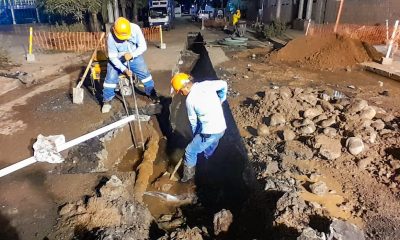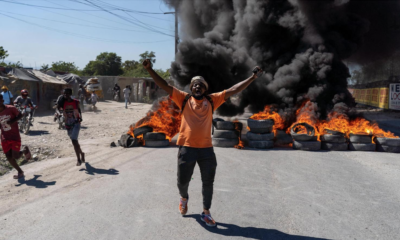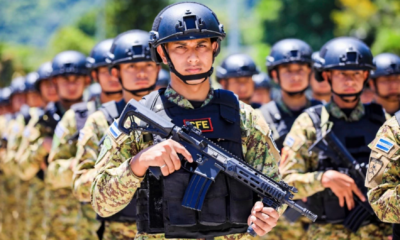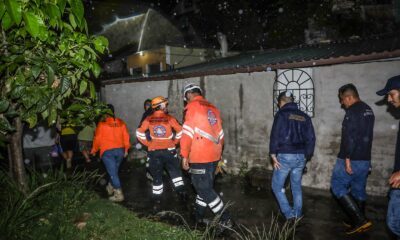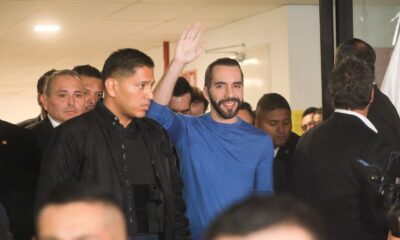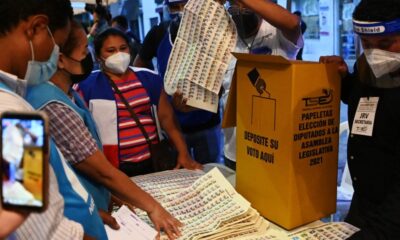Central America
Troops deployed in San Salvador amid massive gang crackdown
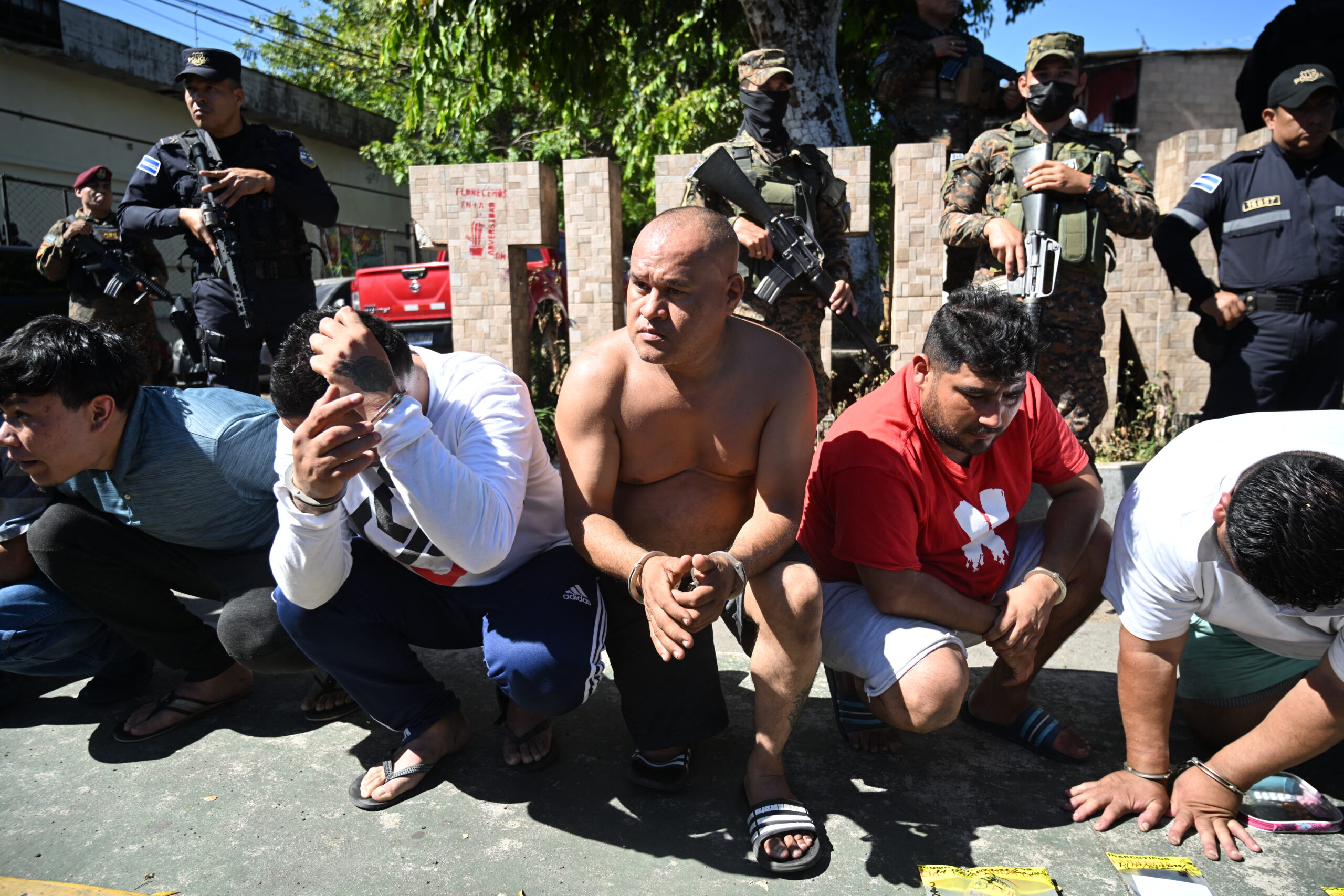
| By AFP |
More than 2,000 soldiers and police surrounded two districts in El Salvador’s capital on Saturday as part of President Nayib Bukele’s war on gangs, the second such operation this month in the Central American country.
“As of this morning, the Tutunichapa district in San Salvador is totally surrounded,” Bukele posted on Twitter.
“More than 1,000 soldiers and 130 police officers will extract the criminals who still remain,” he added.
Bukele later tweeted that 1,000 more soldiers and 100 police officers had been dispatched to La Granjita, another neighborhood in the capital.
“After encircling Tutunichapa, a famous drug distribution center, we knew that many drug traffickers would take refuge in the neighborhood of La Granjita, another famous distribution center”, Bukele tweeted.
Images released Saturday by the office of the president showed heavily armed soldiers entering Tutunichapa, a populous district where small houses mostly constructed of concrete blocks stand alongside one of the many polluted streams that run through San Salvador.
Justice Minister Gustavo Villatoro posted photos of members of an anti-narcotics police unit with drug-sniffing dogs.
“We are going to extract every criminal from our communities,” Villatoro said in a Twitter post.
‘Bastion on crime’
Defense Minister Rene Merino said 23 people had been arrested in Tutunichapa, without specifying whether they were accused of being gang members or drug traffickers.
“All terrorists, drug traffickers and gang members will be removed” from the area, Bukele said in another tweet, adding that until recently it was a “bastion of crime.”
“Honest citizens have nothing to fear and can continue to live their lives normally,” he wrote.
Local resident Edwin Diaz, 51, cheered the law enforcement action, saying the area has long been considered a dangerous place due to gang activity and drug sales.
“All our lives we have suffered the stigma that here there is drug dealing, gang members, bad things, and today with this security they have set up, there is nothing to fear,” Diaz told AFP by phone on Saturday.
Echoing Bukele’s remark, Diaz added: “He who owes nothing, fears nothing.”
Almost 60,000 arrests
Earlier this month, Bukele, who has declared a state of emergency to quash gang violence, sent 8,500 soldiers and 1,500 police officers to surround Soyapango, the country’s third-largest city, with a population of nearly a quarter million.
The president had announced last month a plan to use troops to surround cities while house-by-house searches are conducted for gang members. Soyapango was first on the list.
The siege there has seen armored military vehicles, some with artillery, carrying out constant patrols while heavily armed police search houses and people as they leave their neighborhoods, as well as random sweeps of public transport.
As of Saturday, some 650 suspected gang members had been arrested in Soyapango, Merino said.
“We continue working in the rest of the territory looking for terrorist criminals,” the defense minister added.
Almost 60,000 suspected gang members have been arrested since the launch of the state of emergency in March, which has prompted humanitarian groups to question what they see as heavy-handed tactics.
Despite that criticism, El Salvador’s Congress on Thursday once again extended the state of emergency for another month.
Over 75 percent of Salvadorans approve of the emergency declaration, and nine out of 10 Salvadorans say that crime “has decreased” with Bukele’s policies, according to a Central American University (UCA) poll published in October.
Central America
Nicaragua Held Responsible for Harassment of Opposition Prosecutor and His Family
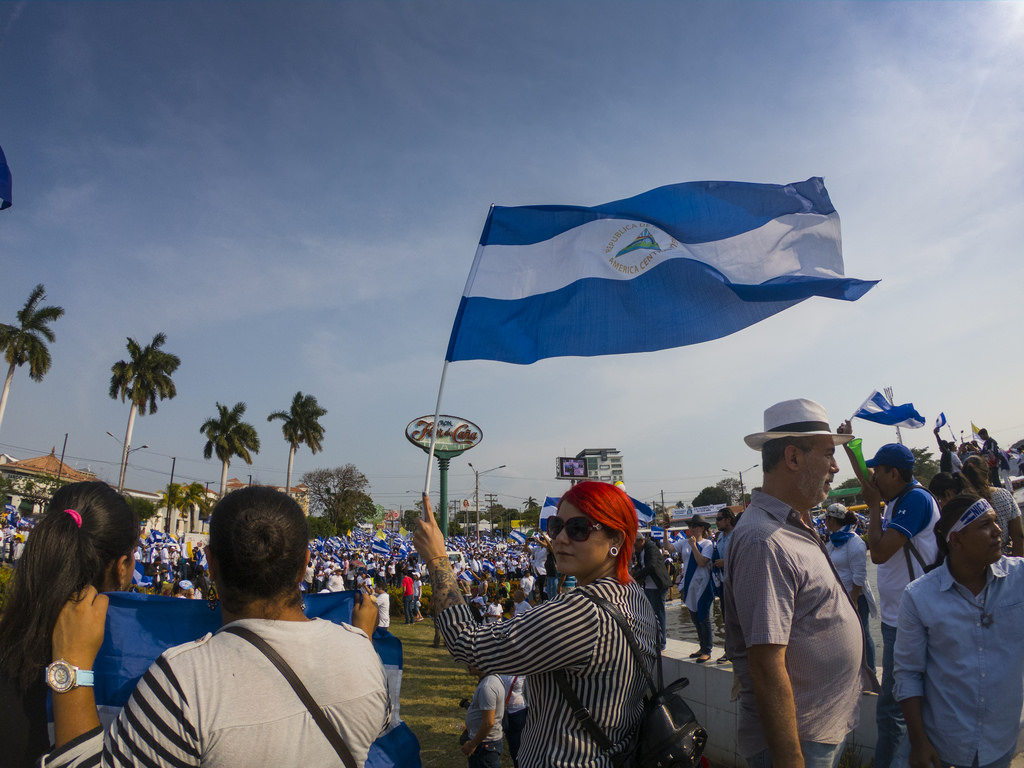
The Inter-American Court of Human Rights on Wednesday found Nicaragua responsible for threats, harassment, and attacks suffered by opposition election monitor Jaime Antonio Chavarría and his family after he reported irregularities during the July 27, 2008 municipal elections.
Chavarría was serving as an electoral verification prosecutor for the opposition Constitutional Liberal Party at a polling station in Managua on election day. He filed a formal objection with local authorities, complaining that the polling center had closed before the scheduled time while voters were still waiting to be verified.
According to the ruling, Chavarría and several relatives present at the site were subjected to insults and threats by a representative of the ruling Sandinista National Liberation Front (FSLN). As they were leaving the area, they were intercepted and attacked by a large group of individuals allegedly incited by local Sandinista leaders.
“The events were witnessed by police officers who refrained from intervening. Mr. Chavarría Morales and his relatives, who suffered various injuries, managed to escape in their vehicle, which the aggressors attempted to set on fire,” the court detailed.
Chavarría reported the incident to the National Police, but the case was ultimately shelved in May 2016. Acts of harassment and intimidation continued over time.
The court concluded that the State bore responsibility for the threats, harassment, and subsequent attacks following July 2008, citing the participation or acquiescence of state agents in some of the incidents, as well as the failure to adopt protection and investigative measures.
In its judgment, the court determined that Nicaragua violated Chavarría’s rights to personal integrity, freedom of thought and expression, political rights, equality before the law, and the right to defend human rights.
The ruling also established state responsibility for violations affecting the personal integrity, judicial guarantees, judicial protection, and family protection rights of Chavarría and for the harm caused to the life plans of his children: Cindy Alicia Chavarría Alonso, Jeffer Joaquín Chavarría Alonso, and Jaime Antonio Chavarría Alonso.
Central America
Guatemala’s Attorney General Fails in Bid for Top Court Seat Amid Corruption Allegations
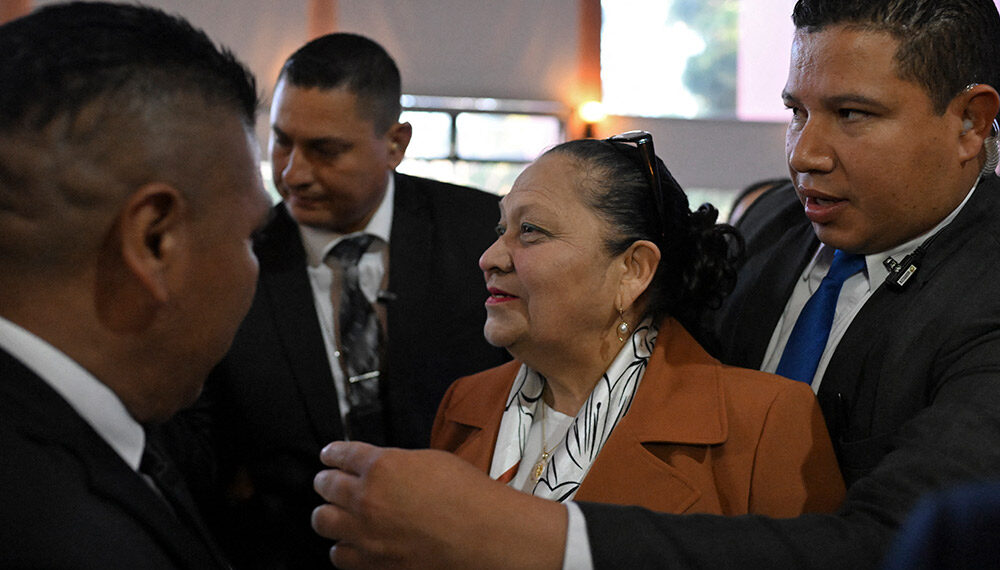
The Attorney General of Guatemala, Consuelo Porras, failed on Tuesday in her bid to join the country’s highest constitutional court, a position that would have granted her immunity from corruption allegations for which she has been sanctioned by the United States and the European Union.
Porras, whose term as attorney general ends in May, did not receive a single vote in the final round of voting to become a magistrate of the Corte de Constitucionalidad, whose rulings are final and cannot be appealed.
The Supreme Court reelected Dina Ochoa and Claudia Paniagua as its representatives to the Constitutional Court.
Ochoa is considered close to former presidents Jimmy Morales (2016–2020) and Alejandro Giammattei (2020–2024), both accused of corruption. Paniagua, like Porras, has been sanctioned by the United States.
Washington and the European Union have labeled Porras as “corrupt” and “undemocratic,” accusing her of attempting to block the inauguration of Social Democratic President Bernardo Arévalo two years ago.
In addition, the 72-year-old attorney general—who is seeking a third term—has been accused of forcing anti-corruption officials, journalists, and social leaders into exile. She denies the allegations and claims they are part of a political persecution campaign.
Porras’ chances of remaining in office, a position she has held since 2018, are considered slim, as President Arévalo is responsible for appointing the next attorney general.
Central America
Panama Canal Monitoring Trade as Middle East Conflict Disrupts Shipping
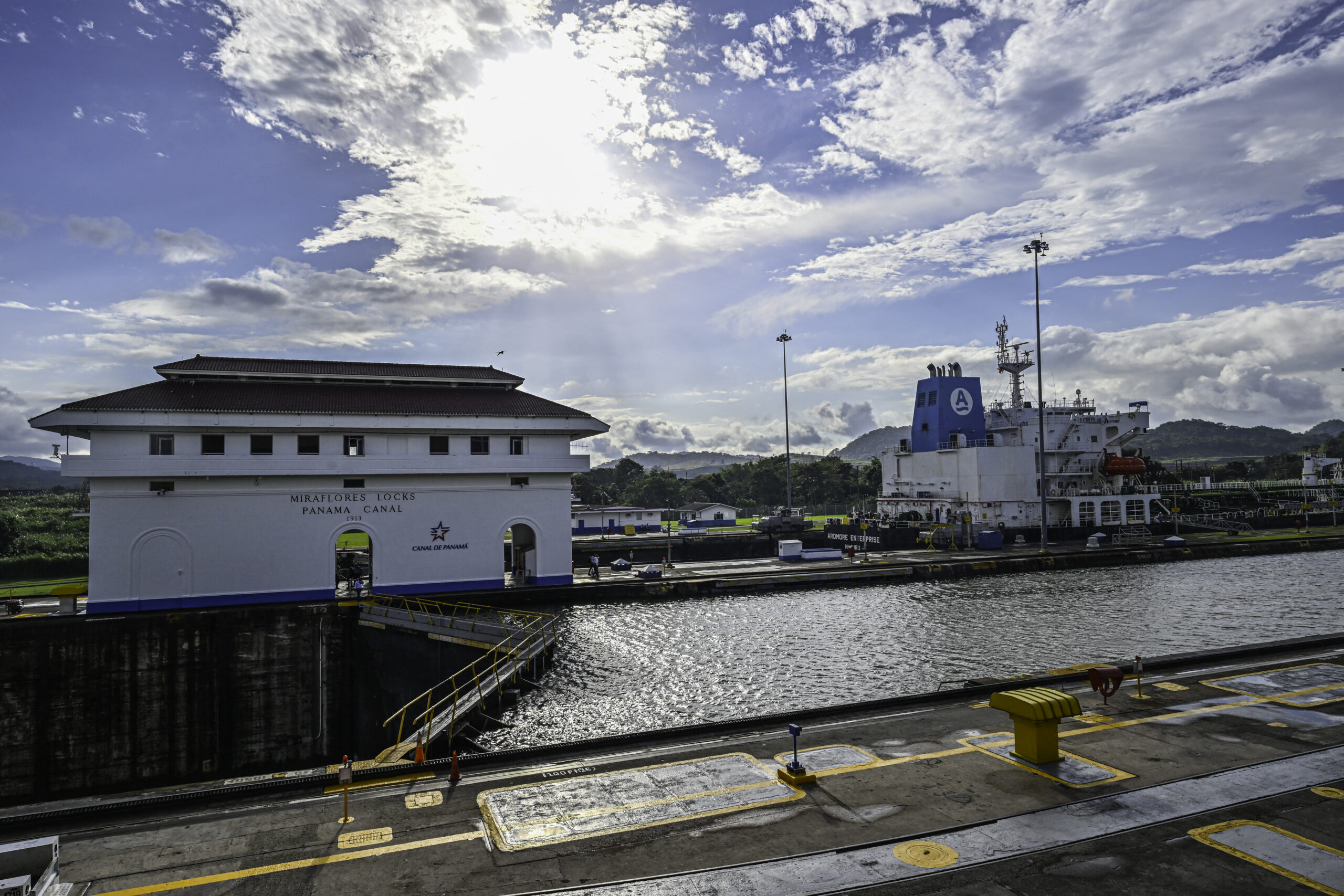
The Panama Canal Authority (ACP) said Monday it is closely monitoring global maritime trade developments following the conflict triggered by joint U.S. and Israeli strikes against Iran.
However, the ACP described it as “premature” to predict potential consequences for vessel traffic through the interoceanic waterway, which handles roughly 5% of global maritime trade.
“The Panama Canal continuously monitors the evolution of international maritime trade and the dynamics that may influence its flows,” the authority said in a statement. The canal’s main users are the United States and China, connecting primarily the U.S. East Coast with Asia, including South Korea and Japan.
The ACP emphasized that the canal “continues to operate safely, efficiently, and reliably,” providing uninterrupted service to the global maritime community.
Global Shipping Disruptions
The U.S.-Israeli military operation against Iran and Tehran’s retaliatory actions have disrupted global maritime traffic, particularly oil tanker routes.
Shipping giants Maersk and CMA CGM have suspended transits through the Strait of Hormuz as well as crossings via the Suez Canal, the key route linking the Mediterranean Sea and the Red Sea.
As a result, cargo vessels are now rerouting around Africa to reach Europe from the Middle East and Asia — a detour that adds several thousand kilometers and several days to voyages.
-

 International3 days ago
International3 days agoIran Reports 201 Dead, 747 Injured After U.S. and Israeli Strikes
-

 International3 days ago
International3 days agoPope Leo XIV Urges End to ‘Spiral of Violence’ in Middle East
-

 International2 days ago
International2 days agoBrazil’s Supreme Court Rejects Bolsonaro’s Bid for House Arrest
-

 International4 days ago
International4 days agoSecurity Council to Hold Emergency Meeting on Middle East Crisis
-

 Sin categoría4 days ago
Sin categoría4 days agoTrump: ‘We Think It’s True’ Amid Claims Iran’s Supreme Leader Was Killed
-

 International2 days ago
International2 days agoAnti-ICE Billboard Campaign Targets Immigration Spending in 31 U.S. Cities
-

 International2 days ago
International2 days agoTrump Warns of ‘Major Wave’ of Attacks as Iran Conflict Escalates
-

 International1 day ago
International1 day agoSpain’s Prime Minister to Address Nation Amid Trump’s Trade Threats
-

 International2 days ago
International2 days agoMexico Calls for Immediate Probe After National Dies in ICE Custody
-

 International2 days ago
International2 days agoBolivia Orders Three Investigations Into Deadly Military Plane Crash
-

 International1 day ago
International1 day agoNew York Announces First 2,000 Seats in Universal 2-K Program
-

 Central America2 days ago
Central America2 days agoPanama Canal Monitoring Trade as Middle East Conflict Disrupts Shipping
-

 Central America1 day ago
Central America1 day agoGuatemala’s Attorney General Fails in Bid for Top Court Seat Amid Corruption Allegations
-

 International1 day ago
International1 day agoWarner Bros. Developing First ‘Game of Thrones’ Movie With ‘Andor’ Writer
-

 International4 hours ago
International4 hours agoWhite House Says Spain Agrees to Cooperate with U.S. Military After Trump Threatens Trade Embargo
-

 International4 hours ago
International4 hours agoSpain Denies Any Agreement to Cooperate with U.S. Military in Iran Operations
-

 Central America4 hours ago
Central America4 hours agoNicaragua Held Responsible for Harassment of Opposition Prosecutor and His Family
-

 International4 hours ago
International4 hours agoClaudia Sheinbaum: Operation Against ‘El Mencho’ Was Based on Pending Arrest Warrants































